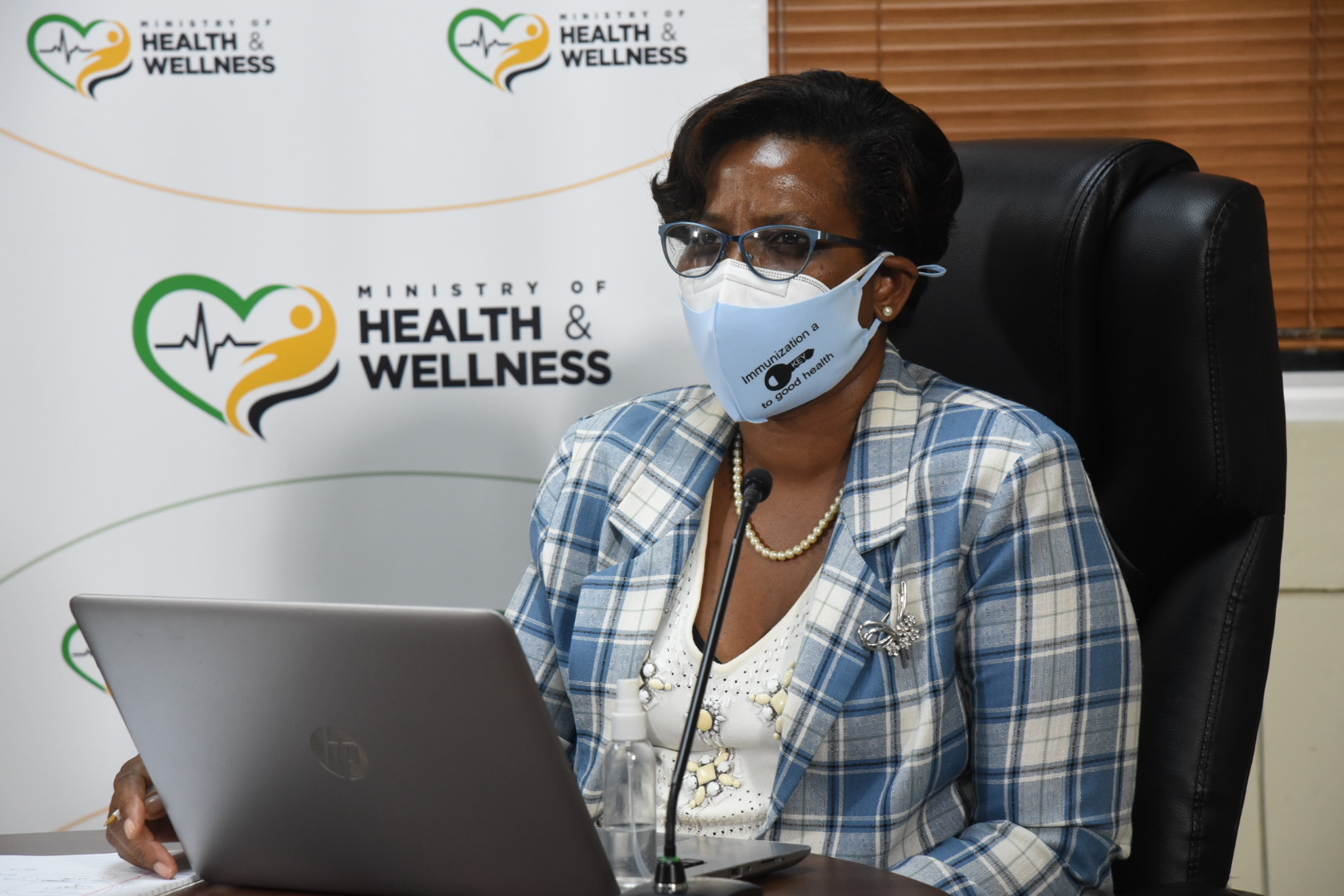Vaccines Prevent Illness, Not Cure Diseases – Dr. Ennis
By: , September 16, 2021The Full Story
Director of Family Health Services in the Ministry of Health and Wellness, Dr. Melody Ennis, says while vaccines don’t cure diseases, they prevent severe illnesses from the viruses.
Responding to questions at a virtual coronavirus (COVID-19) sensitisation session organised by the Kitson Town Baptist Church in St. Catherine, on Tuesday (September 14), Dr Ennis said smallpox, tuberculosis (TB) and several other viruses are not cured by vaccines, but severe illness is avoided, just like with the COVID-19 vaccines.
“This business that only COVID-19 vaccines prevent severe illness is not true. We just need to go back in history and look at other vaccines,” Dr. Ennis said, adding that a vaccine will only work for the particular disease for which it is made.
In her wide-ranging address, the Director also dismissed the view that vaccines stay in the bodies of persons and can cause damage. “Vaccines don’t have any impact on persons. All the vaccines simply do is prime our own bodies to create germ-fighting tools; the vaccines don’t stay in us forever to cause any long-term effect,” she pointed out.
Noting that all the approved vaccines are 100 per cent effective in preventing severe illness, hospitalisation, and deaths, she said they have worked so well that a generation of people are not aware of the devastation that has been prevented by vaccines. They were not around when diseases such as polio, rubella, and lockjaw were rampant. “The germs that cause these things are still around, so, if we don’t get protection, we can become vulnerable,” she said.
Meanwhile, pastor of the church, the Reverend Norva O. Rodney, who is also President of the Jamaica Baptist Union (JBU), told the forum that his view is consistent with Dr. Ennis’ and “persons are to take the vaccines where possible”.
“And, if they have challenges, they are to seek medical attention, but I am encouraging vaccines. I am very much for the vaccination programme,” the Pastor said.
At vaccination sites, health educators counsel persons who take the injection, providing information about the vaccination process. The educators also answer relevant questions, while medical doctors or registered nurses observe recipients of the vaccines for 15 minutes for any adverse reactions. Those who exhibit a severe reaction will be monitored for 30 minutes. If necessary, resuscitation and/or transportation to hospital will be provided.


